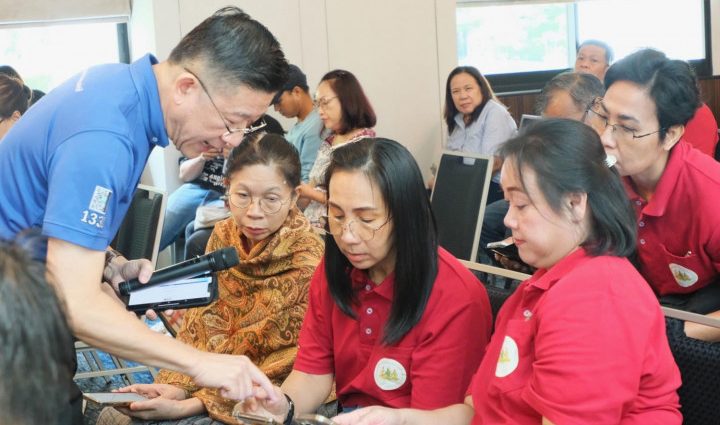Thais in Singapore suggest adding mental healthcare as living abroad can be stressful

Telemedicine services covered by the universal healthcare programme are now available to Thai nationals living abroad, according to the National Health Security Office (NHSO).
The service was launched in January to ensure Thais living outside the country have access to primary healthcare, said Dr Atthaporn Limpanyalert, the deputy secretary-general of the NHSO.
The Thai embassy in Singapore recently invited NHSO officials to provide detailed information about the service to the 20,000-strong Thai community there.
The initiative aims to lower medical costs, reduce patients’ expenses and save time travelling to hospitals, said Dr Atthaporn.
NHSO officials also conducted a survey during a two-day visit on Aug 17-18 to assess the healthcare concerns of Thais in Singapore.
The findings showed that more than 60% of the respondents were over 50 years old. About 40% were employed as general workers, 17% as domestic workers and 9.3% in construction.
About 75% of the respondents reported experiencing minor or mild illnesses in the past 12 months. Only 61% said they had health insurance, and those without it seek treatment at clinics near their homes. Around 65% said their medical expenses accounted for less than 10% of their wages, while 13% reported that medical costs made up 20-30% of their salary.
While 39% decided not to seek treatment for some illnesses due to concerns about high costs, 64% said they faced communication problems when seeking healthcare services. As well, 13.6% said they were unable to access services due to long wait times.
Respondents suggested the telemedicine programme should include mental healthcare, as many Thais experience anxiety due to cultural differences or work-related stress.

